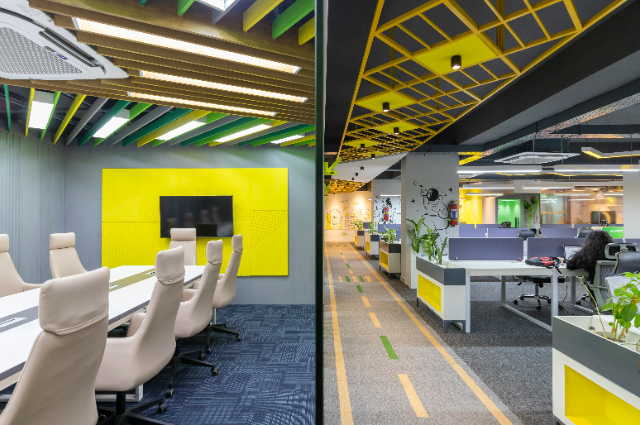
India, one of the fastest-developing nations in the world, is leading a quiet, emerging phenomenon known as the Gen-Z effect. Nearly 377 million Indians belong to Generation Z, which refers to people born from 1997 to 2012. They are the first digital generation, who have grown up surrounded by screens and unlimited access to knowledge, and will make up over one-third of India’s workforce by 2030. They’ve known and been a part of the globalized market since their births. Technology has only seen an upward trend in the past decades. And the beginning of this decade saw these people entering the workplace, the global corporations that have been here in the country. These multinational corporations set up their offices yet fail to implement the same work culture as they did in their countries.
The Indian corporate culture is nothing less than a nightmare for this generation. Exploited people, no career advancement opportunities, lack of basic amenities, and a devotion to overtime have made the workplace an arduous environment. Millennials’ helplessness and need to work and to obey the rules, no matter how unfair or vague, made this a vicious cycle that is now being brought to an end.
Generation Z is here to question and modify it. This generation grew up in a hyperconnected environment in which transparency is expected rather than sought. They've witnessed, in real-time, open discussions about burnout, toxic workplaces, and work-life balance on social media, and their parents struggling with it. Then, when they end up in inflexible corporate organizations that applaud 14-hour workdays and outdated hierarchies, they see dysfunction rather than discipline. Unlike the previous generations, Gen Z does not validate productivity and pays equal attention to work-life balance and ambition. Their definition of work is more than just a source of income; it is a shade of their personality, creativity, and what they want to achieve. More than 70% of India's Gen Z workers value mental health and flexible working hours over better salary, a 2024 Deloitte India survey said. They will not hesitate to quit if a job does not align with their ideals.
Another big difference is in their perceptions of authority and communication. The traditional top-down management system, in which questioning superiors was considered insubordination, has no attraction for them. Gen Z believes in collaboration and mentorship over unquestioned commands and micromanagement by either the managers or the clients. No different has been the case with the rise of startups and hybrid workplaces in India. Startups such as Zerodha and Swiggy are integrating shorter workweeks, mental health breaks, and remote flexibility for the new age. They’re not just attracting Gen Z—they’re learning to evolve with them. One of the biggest shifts this generation has brought into the workplace is the rise of side gigs and parallel careers. Unlike earlier generations, they don’t see a job as a single, lifelong path but as one of many possibilities. For many young Indians, freelancing, content creation, coaching, or running small online ventures go hand in hand with their full-time roles. It’s not just about earning extra income—it’s about expression, creativity, and freedom. They want the space to explore all sides of themselves and refuse to believe that passion must be sacrificed for stability. Side hustles have evolved into both a declaration of independence and a buffer against the uncertainties of corporate life, reflecting a deeper desire to own their time, talent, and identity.
Technology is now transforming the workplace around them. From automating work to leveraging AI tools for marketing and social media, Gen Z views technology as a given, rather than an accessory. For them, efficiency is reinvented by placing output-based work models first before rigid attendance systems. "Being online" does not necessarily translate to productivity for them. And it's this changing mindset that is driving organizations more and more to exchange attendance for effect and long hours for innovation. However, this change is not without tension. Many traditional employers describe Generation Z as "impatient" or "disloyal." However, this impatience is the outcome of a generation that refuses to wait for respect or growth, which should have been granted from the start. They don't want to "prove their worth" by doing unpaid overtime or carrying out orders without discussion. They want to make a valuable contribution, have transparent relationships regardless of level, and appreciate the work they do.
This transition has also brought on a new set of troubles. As discussions of mental health and toxic workplaces become increasingly open, terms like "gaslighting," "quiet firing," and "fake empathy" have entered common parlance because they reveal the emotional labor so often demanded beneath the disguise of professionalism. The modern workplace has learned to mark overtime as "dedication." Many young professionals have realized that mental health training is ineffective when the culture itself is depleted. Yet, this generation is refusing to romanticize tiredness. At the same time, Gen Z's "quit culture"—in which employees leave positions that do not line up with their values—has delivered a wake-up call to businesses that refuse to own up to their lack of evolution. High attrition rates are no longer regarded as revolt but rather as a sign of a culture unable to grow. And it needs to be said clearly: Only the organizations that listen, adapt, and humanize the workplace will succeed over the next decade.
In many respects, Generation Z is reconstructing the old system, one flexible policy and open conversation at a time. Their result is not chaos, but correction. A rethinking of what work life should entail. Generation Z isn’t rewriting the rules of work: they’re reminding us why work mattered in the first place—to live and not to serve.
Sources:
- Gen Z and Millennials: Reshaping the Future of the Workforce. (2022, June 7). Nasscom. https://nasscom.in
